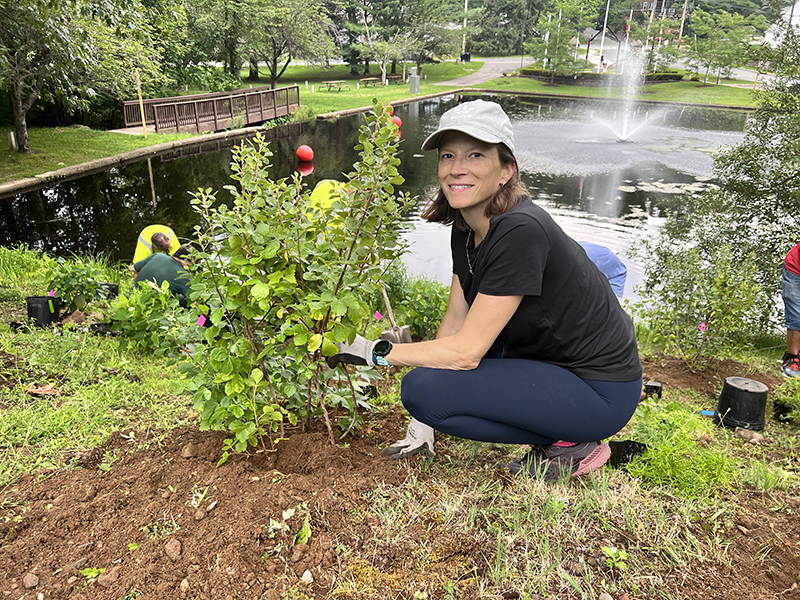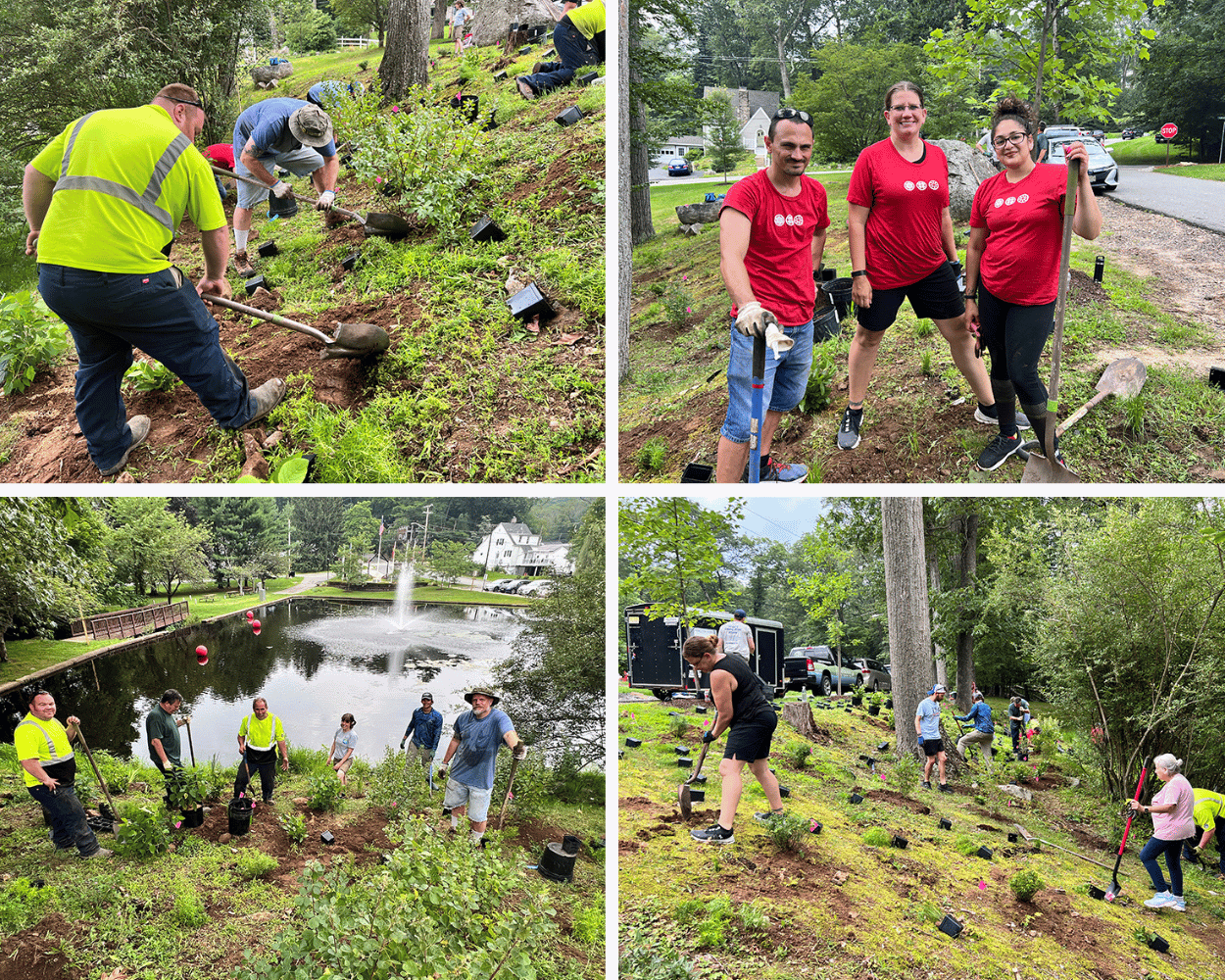
July 27, 2023| Environment
By: Holly Odgers
Last week, a group of more than 20 dedicated volunteers along with staff from the Mt. Arlington Department of Public Works, the Lake Hopatcong Foundation, Lake Hopatcong Commission, and Princeton Hydro, came together to make a positive impact on Lake Hopatcong’s water quality by planting 400 native plants along the western shoreline of Memorial Pond in Mt. Arlington.

Memorial Pond is a stormwater retention basin designed to collect stormwater runoff from impervious surfaces like rooftops and roadways and slowly release it so downstream areas do not erode or flood. The waters from Memorial Pond empty into Glen Brook which flows directly into Lake Hopatcong.
Vegetative strips, or riparian buffers, like the one planted along the water’s edge at Memorial Pond, serve as protective barriers that filter out pollutants and excess nutrients from stormwater runoff before they enter the pond and ultimately, Lake Hopatcong. These nutrients include phosphorus, which can fuel the growth of aquatic vegetation and potentially lead to harmful algal blooms in the lake.
In addition, the dense vegetation and root systems of plants within the buffer zone will help stabilize the soil, reducing erosion and sedimentation, which can harm aquatic habitats and impair water quality. These plants will also serve as valuable habitats for a diverse range of plant and animal species, contributing to a healthier and more balanced ecosystem.
The project was funded through a grant from the New Jersey Department of Environmental Protection awarded to the Lake Hopatcong Commission in collaboration with the Lake Hopatcong Foundation. The Borough of Mount Arlington and Princeton Hydro also served as project partners.
This collaborative water quality improvement project is a perfect example of simple, yet impactful, actions that can make a difference in protecting our water resources for generations to come.
